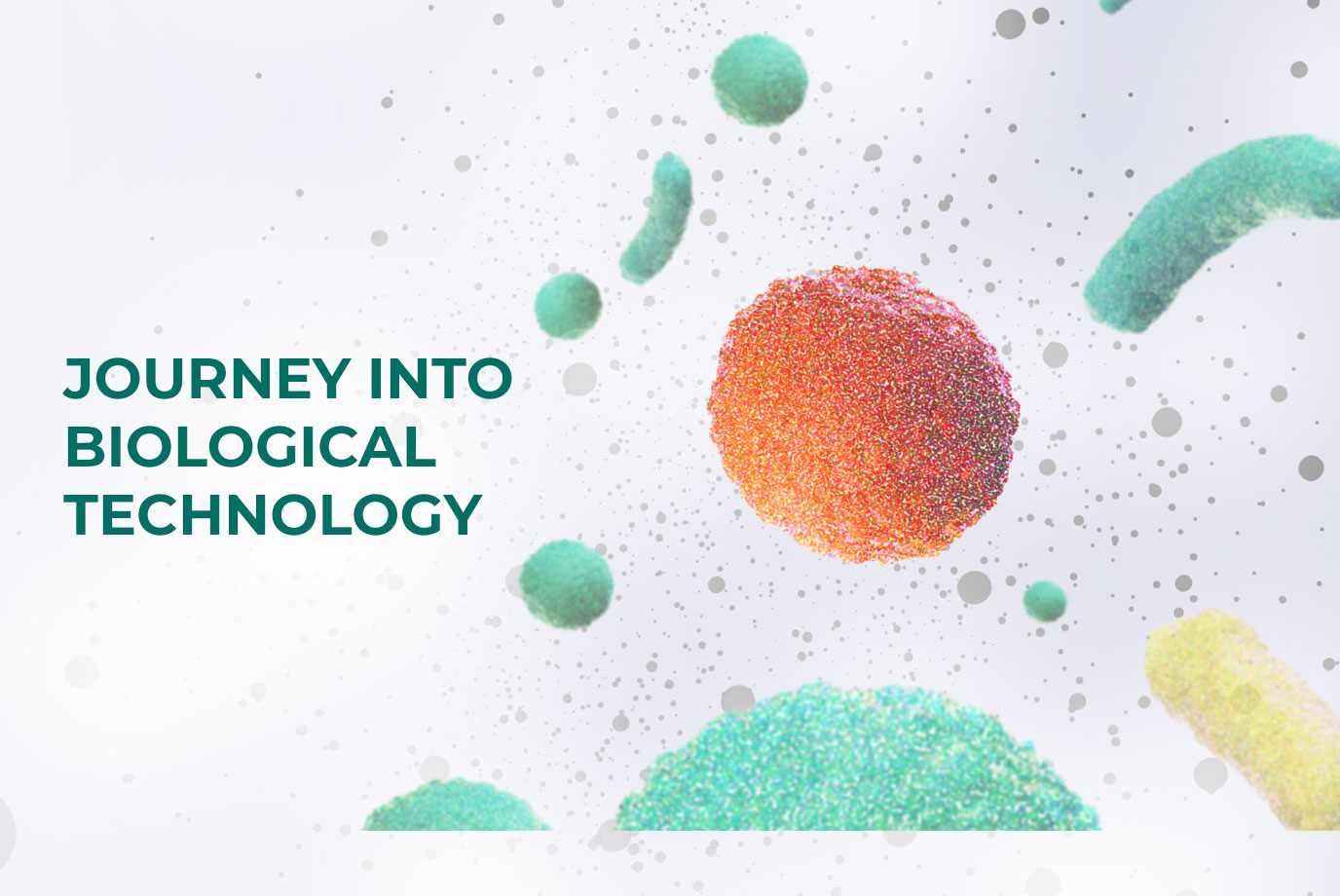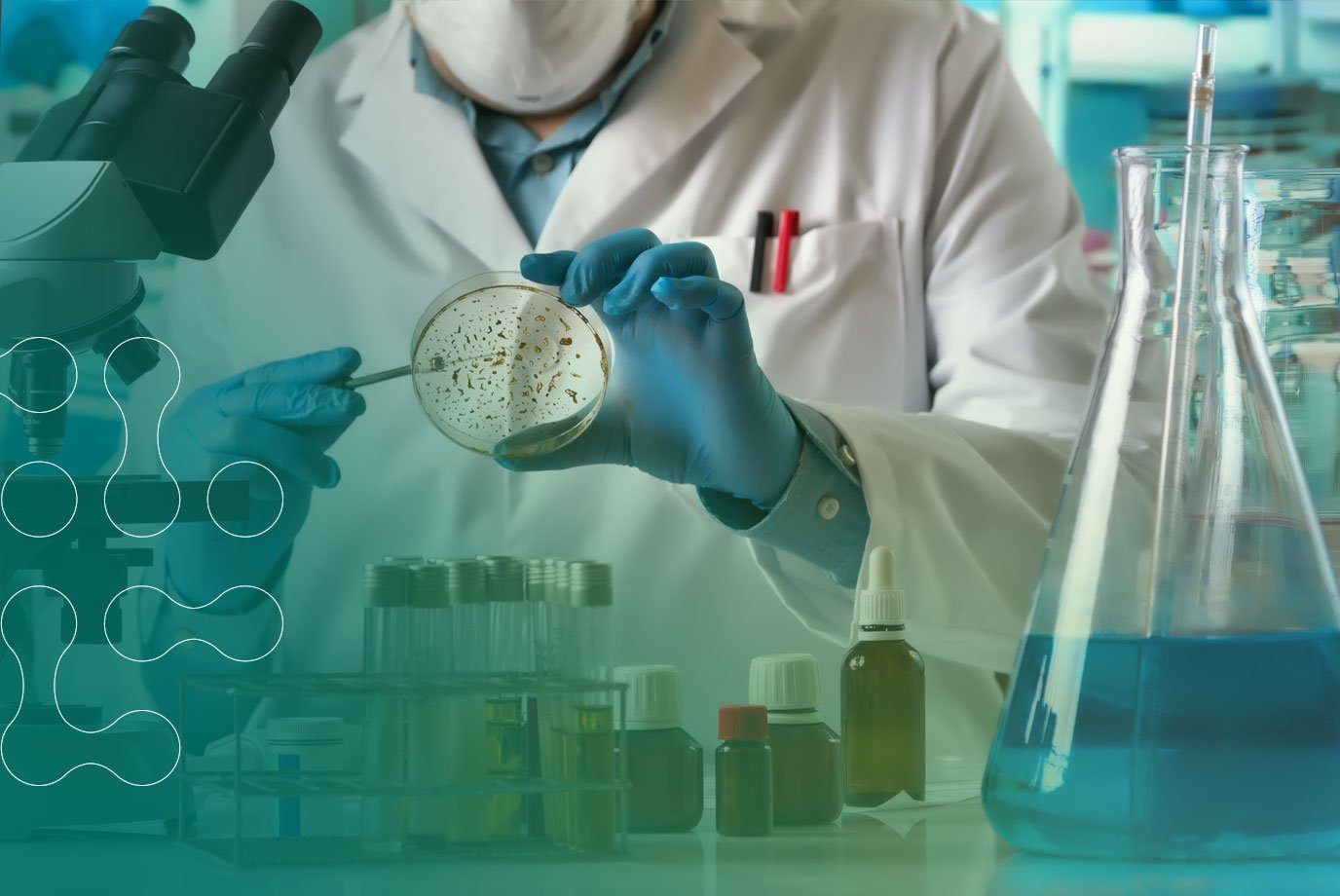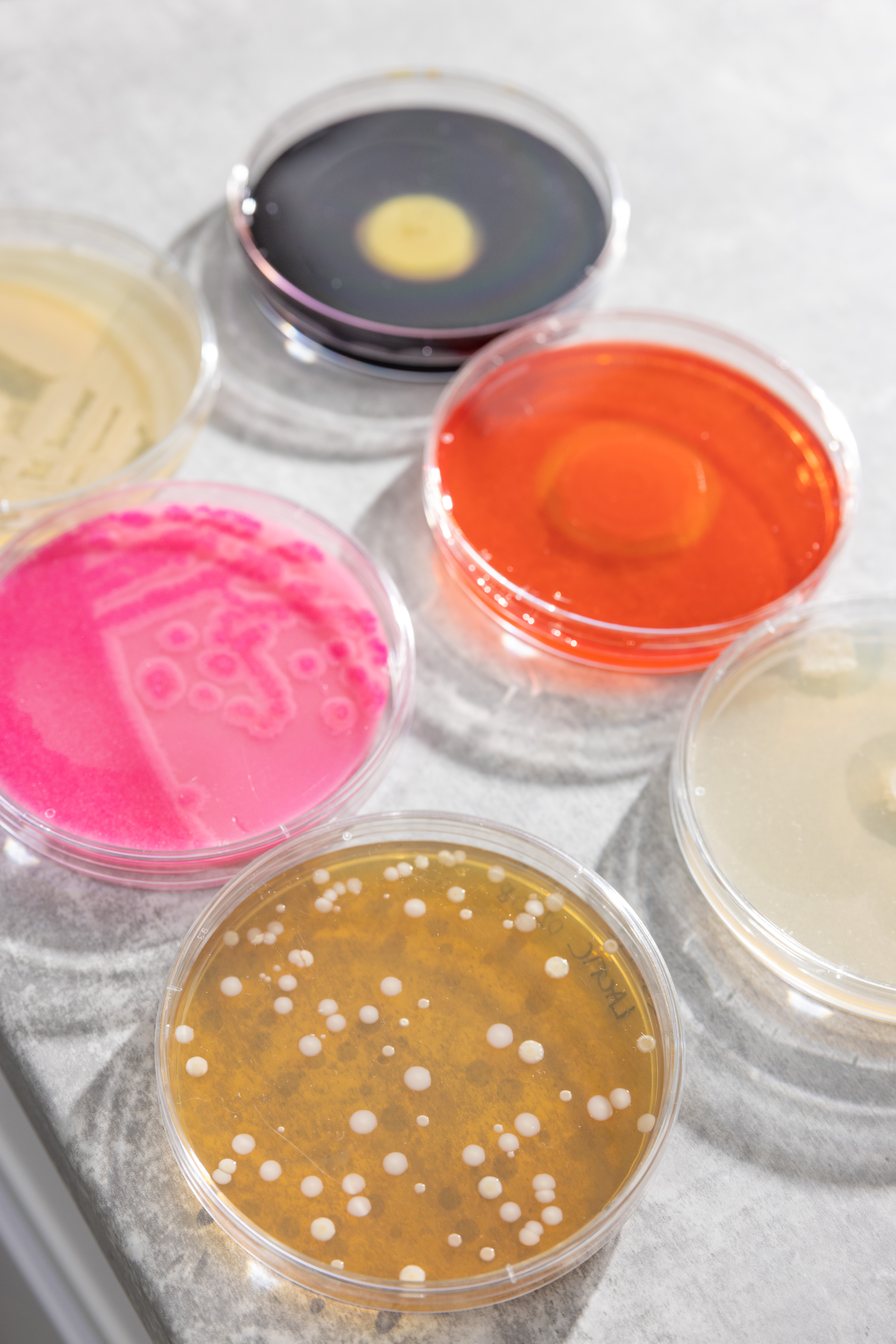
Microbes & Enzymes
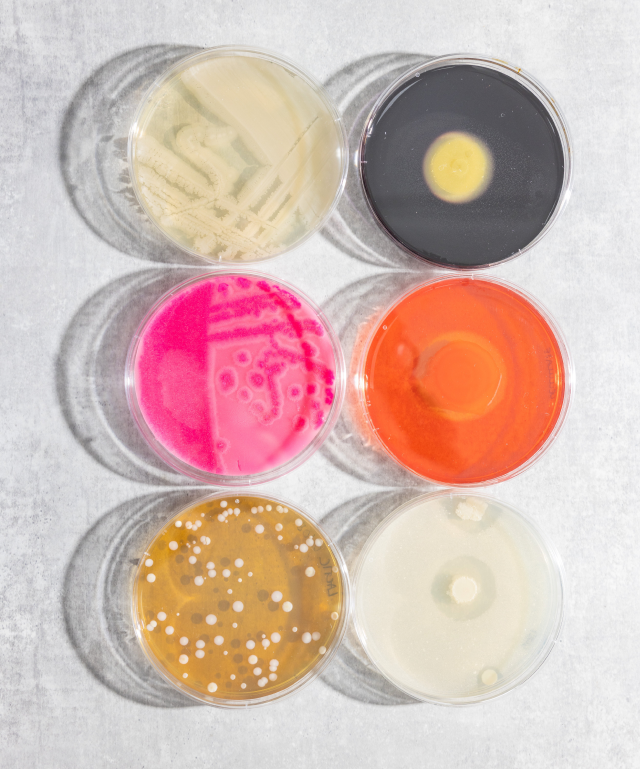
The Power of Bacteria
Bacteria are single celled, living organisms that have developed over billions of years. The ultimate survivors, they were the first life forms to appear on Earth. When scientists talk about life on other planets, they mean bacteria!
Bacteria can be found everywhere – from the air we breathe to the ground we walk on and even the food we eat. They are Nature’s own cleaners and degraders. Without them, waste wouldn’t decay, we couldn’t digest food, plants couldn’t grow, and there would be a lot less oxygen to breathe.
Biotech cleaning products harness the natural power of bacteria to deep clean, deodorise and degrease. To work commercially, the bacteria must be:
- Safe
- Adaptable and resilient
- Effective
Safety
To be safe for human and commercial use, bacteria must be:
Adaptability & Resilience
The bacteria within biotech products are often present in spore form which has a number of advantages:
- Spore formation allows survival in extreme environments (temperature, pH, oxygen level etc.) for years, making them suitable for all types of cleaning environments.
- The spore coat is highly resistant to physical and chemical challenges.
Spores are highly stable in liquid and solid formulations so can be used within various types of products including concentrate, gel and powder. - Spores germinate and flourish in the right conditions, i.e. when warmth, nutrients and water are present. The bacteria revert to the spore form when conditions deteriorate, germinating when conditions become favourable once more. This provides valuable residual protection.
- Otherwise the bacteria must be sufficiently resilient in order to be formulated into products, such as lactic acid bacteria in silage inoculants.
- Many bacteria form biofilms, providing a continuous and renewable source of enzymes for the removal of organic matter. Continued use of a product leads means a thriving biofilm is maintained, allowing the bacteria to spread and reach areas that traditional cleaning technology can’t.
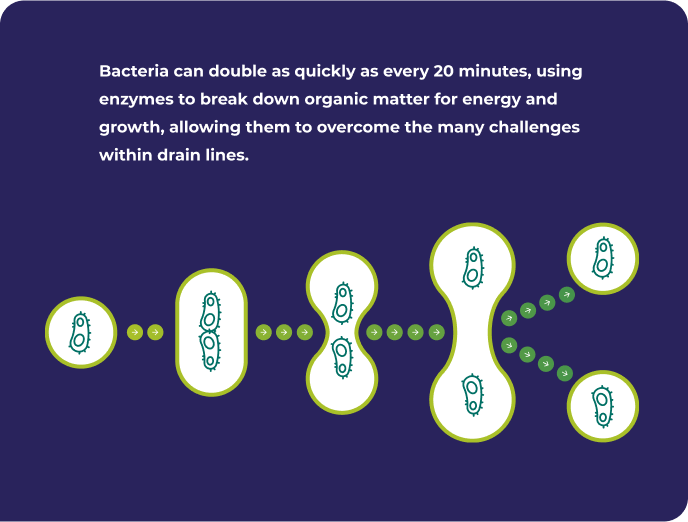
Effectiveness
All bacteria are not the same. Bacteria produce enzymes that break down specific waste into smaller molecules so they can be absorbed by the cells to allow them to grow and flourish. If the bacteria don't have the correct enzyme abilities they will have no or little impact on the waste. Species and strain is vital to how products behave and what they can do.
For example, a product for kitchen floors would contain bacteria with a broad range of enzyme capabilities - producers of amylase, cellulase, lipase and protease, as a wide range of organic matter is to be expected. Conversely a washroom product would focus on protease, to deal with protein in urine and from other sources such as skin cells, plus uricase to break down uric acid. This is a precursor to uric acid scale commonly found in toilet areas, which not only looks unpleasant and causes blockages but can also harbour unpleasant odours.
-
Our products contain multi strain microbial packages designed for washrooms, kitchens and problem environments
-
Our bacteria reach deep into carpet piles and other soft fabrics, into drains, cracks and other areas difficult to reach
-
Our microbes leave strong biofilms that keep working after the initial clean and offer longer term protection against odour
The microscopic size of bacteria and the nature of their growth means they can access areas that normal cleaning products and processes can't reach. For example, they can penetrate deep into carpet fibres, into grouting, cracks between tiles and into other places that would be difficult, or impossible, for humans to access. They can also form biofilms in pipework and drains, another difficult access area.
At Biological Preparations, we’ve analysed hundreds of strains to identify those that produce the most effective enzymes for the degradation of fats, starch, cellulose, protein and uric acid:
